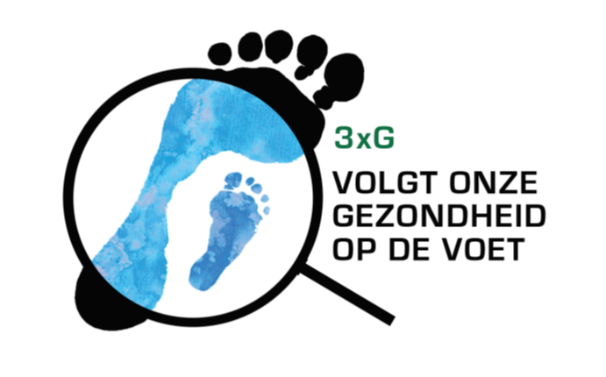Walking and cycling gained in popularity during the corona virus crisis, including amongst children from Belgium's Campine region who took part in the 3xG study. Their parents, on the other hand, felt that the crisis had a negative effect on their social network and leisure activities. These are the findings of the 3xG study that is monitoring the health of a group of young children in the towns of Dessel, Mol and Retie. The findings are taken from the results of a corona virus questionnaire completed between 8 and 28 April 2021, which provides an insight into the wellbeing of 133 parents and 144 children. Now that we can gradually start to enjoy our regained freedom, the 3xG study is evaluating the impact of the crisis on the wellbeing of the parents and children from the region of Dessel, Mol and Retie taking part in the study.
Children and parents are feeling relatively good during the corona virus crisis
About one in two of the children included in the 3xG study felt bored or felt lonelier during the crisis and around one in three children felt more sorrowful or got angry more often. On the other hand, 31% felt calmer and 19% even felt happier. These figures are more positive than the ones obtained as a result of "#jongerenovercorona", the widespread online survey conducted by the Flemish Office of the Children's Rights Commissioner. That particular survey was completed by the children themselves, while in the 3xG study, it was the parents who reported on the wellbeing of their child aged between 6 and 10 years.
The results obtained in the 3xG study with regard to the psychosocial wellbeing of the parents were also positive. The average score in that particular area corresponds with the one obtained during the Belgian health survey carried out in 2018, before the corona virus crisis.
Walking and cycling are replacing travelling to school in the car
For the majority of people, the corona virus crisis did not bring about any change to how children go to school, but in 10% of cases, children started to cycle or walk to school, rather than travelling by motorised transport. Even in their spare time, 74% of the children did more walking than they did before the corona virus crisis and 36% cycled more. During the corona virus crisis, fewer hobbies and leisure activities were permitted, so there was more time for activities that consumed little energy. This is what the 3xG study found – 58% spent more time gaming, while 43% watched more television during the corona virus crisis.
An additional focus on one's social network
The 3xG study evaluated the impact of the corona virus crisis on various areas of people's lives, such as work, income, future prospects, family and social life, exercise, weight and diet. According to the survey, it was clear that the overall impact was negative, most notably concerning social life, leisure activities and travel. The 4th and 6th COVID-19 health surveys carried out by Sciensano reported the same trend on a national level. At the time the 3xG study was carried out, the corona virus measures were more flexible than they were when the 4th health survey was conducted and were comparable to the ones in force at the time that the 6th health survey was carried out.
In the case of 74% of those taking part, the quality of social connectedness was given a very low score. That percentage is higher than the results obtained in the 4th (30%) and the 6th (37%) COVID-19 health surveys and this is, therefore, an aspect that will require additional attention within the 3xG region. This autumn, the municipalities of Dessel, Mol and Retie will work together with their neighbouring municipality of Balen to create more opportunities to meet up and to increase social solidarity during the 10-day Mental Health campaign.
The full report on the results of the corona virus questionnaire can be found at www.studie3xg.be. The 3xG study is closely monitoring health in the towns of Dessel, Mol and Retie to identify the needs that exist on a local level and to take prompt action.
More info and updates about 3xG: www.studie3xg.be or via Facebook @3xGstudie
The 3xG study is being carried out on behalf of NIRAS and the MONA and STORA partnerships by a team of researchers from three scientific partners – the Flemish Institute for Technological Research (VITO), the University of Antwerp (UAntwerp) and the Provincial Institute for Hygiene (PIH). The researchers concerned have extensive experience in carrying out health studies and human biomonitoring.


